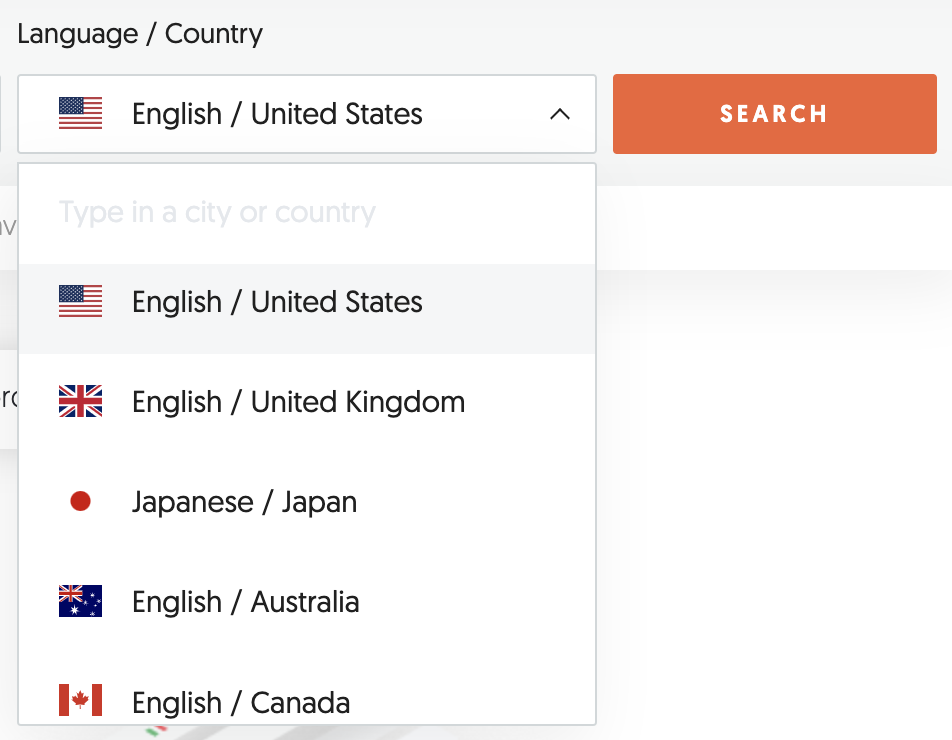From Localization to Globalization: International SEO Essentials
From Localization to Globalization: International SEO Essentials
Blog Article
Browsing the Digital Landscape: Leveraging International SEO for Cross-Border Success
In today's interconnected electronic globe, services are increasingly looking beyond borders to touch right into international markets. The complexity of browsing the digital landscape on an international scale requires a nuanced approach, from understanding the principles of International SEO to carrying out geotargeting and multilingual keyword approaches.
Understanding International Search Engine Optimization Principles
Navigating the ins and outs of international Search engine optimization needs a strong grasp of basic principles to successfully increase on the internet presence throughout borders. One essential aspect of global Search engine optimization is understanding the value of localization.
Additionally, having a clear understanding of geo-targeting is vital. This involves indicating to online search engine the certain countries or areas a site is targeting. Executing hreflang tags is one method to communicate this info, ensuring that the correct version of a web page appears in the search results page for a user in a specific area.
Moreover, understanding the effect of neighborhood internet search engine and social media sites systems is vital for worldwide SEO success. As an example, while Google is dominant in many regions, countries like China have their own search engines like Baidu, needing tailored methods for each and every system to optimize on-line visibility.

Targeting Multilingual Key Phrase Approaches
Establishing multilingual key words strategies is essential for successfully getting to diverse international audiences and making the most of on-line visibility throughout various linguistic areas. When targeting multilingual search phrase approaches, it is crucial to perform comprehensive research study to comprehend the details search terms and expressions utilized by the target market in each etymological region. This entails not just translating search phrases however additionally considering cultural subtleties, local dialects, and search patterns distinct to every target audience.
To produce an effective multilingual search phrase approach, it is crucial to prioritize importance and search intent. Search phrases ought to line up with the content on the site and reverberate with the cultural context of the target market. Using devices such as Google Key Words Planner, SEMrush, or Ahrefs can aid identify high-performing key phrases in different languages and evaluate their search volume and competition degree.
Additionally, tracking and examining the efficiency of multilingual search phrases consistently is necessary for optimizing and fine-tuning the strategy over time. By constantly adjusting to adjustments in search actions and trends, organizations can boost their on-line presence and draw in even more global traffic to their internet sites.
Carrying Out Geotargeting and Hreflang Tags
When intending to improve global search engine optimization methods, incorporating geotargeting and hreflang tags is crucial for maximizing internet site presence across different regions. Geotargeting involves customizing material to certain areas, ensuring that individuals in various locations get relevant details. By applying geotargeting, companies can boost their local search positions and bring in region-specific traffic.

Optimizing Website Framework for Worldwide Exposure
To additionally enhance global search engine optimization approaches beyond geotargeting and hreflang tags, maximizing the internet site structure is necessary for accomplishing global exposure and making the most of reach across various regions. A well-structured website not just improves customer experience yet also facilitates online search engine crawlers in understanding the content and context of the site. When going for worldwide exposure, it is vital to make certain that the site is arranged in a rational fashion that deals with individuals from different nations. Carrying out a clear power structure with distinctive classifications and subcategories can help in enhancing the site's navigating and user-friendliness.
Additionally, producing language-specific subdirectories or subdomains can help internet search engine deliver the best version of the web site to users based on their language choices, further enhancing the general individual experience. Additionally, maximizing URL frameworks to consist of relevant key words and geotargeted terms can boost the site's presence in different areas. By structuring the site successfully for global audiences, services can raise their opportunities of bring in international website traffic and broadening their reach throughout boundaries.

Surveillance and Assessing Cross-Border Performance
Effective surveillance and studying of cross-border efficiency is crucial for reviewing the success of international search engine optimization approaches and recognizing chances for improvement in worldwide reach and visibility. By carefully tracking crucial efficiency signs (KPIs) across various markets, companies can obtain useful understandings into the effectiveness of their cross-border search engine optimization efforts. Monitoring metrics such as organic web traffic, keyword positions, conversion rates, and bounce prices can provide an extensive view of just how well a site is executing in different regions.
Examining cross-border performance data enables organizations to recognize fads, patterns, and locations for optimization. By this link comparing performance across various countries, regions, or languages, firms can identify successful techniques and localize content to much better accommodate specific target market. In addition, checking cross-border performance enables businesses to remain agile and responsive in the ever-evolving digital landscape. Normal analysis of search engine optimization performance on a this content global range guarantees that business can adapt their strategies promptly to take advantage of emerging opportunities and keep a competitive side in worldwide markets.
Conclusion
Finally, global SEO plays a crucial duty in accomplishing cross-border success by enhancing web sites for global visibility, targeting multilingual keyword phrase techniques, implementing geotargeting and hreflang tags, and checking cross-border efficiency. By understanding the basics of worldwide search engine optimization and enhancing website structures appropriately, businesses can efficiently reach and engage with their target market across different regions and languages. This calculated approach is essential for broadening market reach and driving on-line development in today's digital landscape.
Report this page